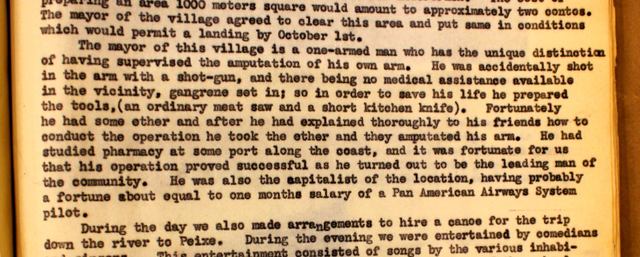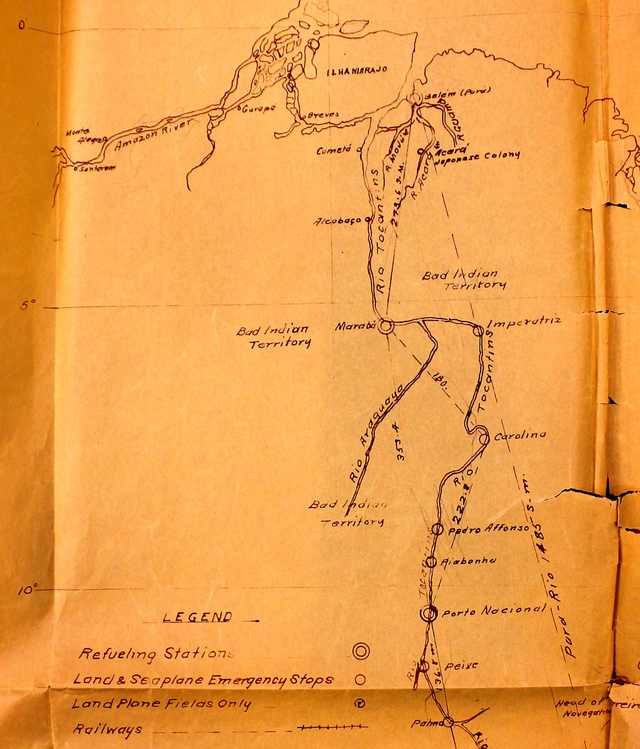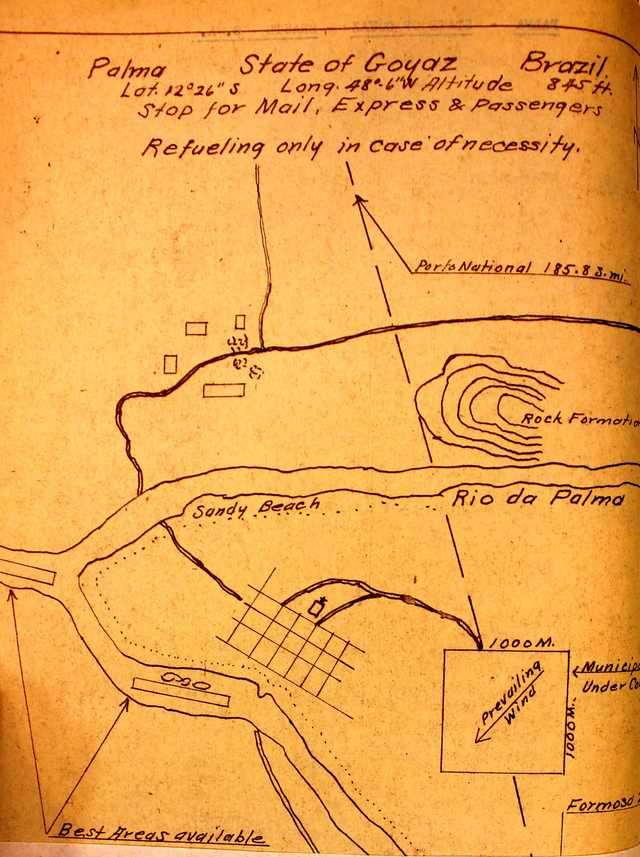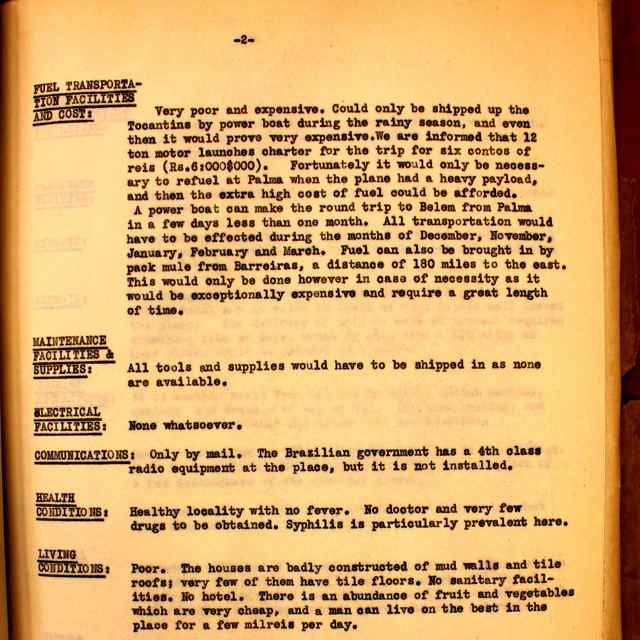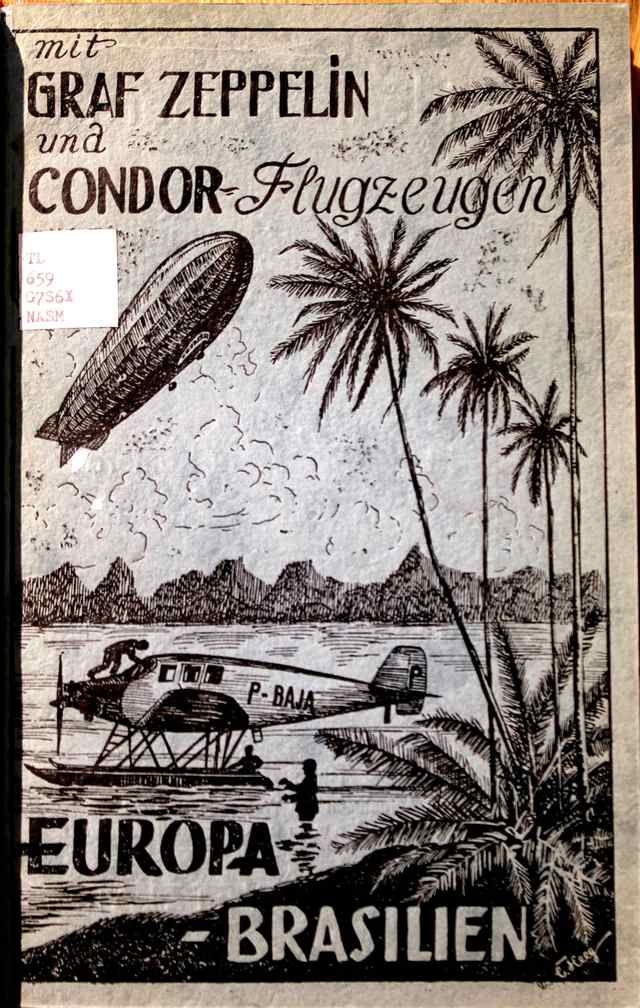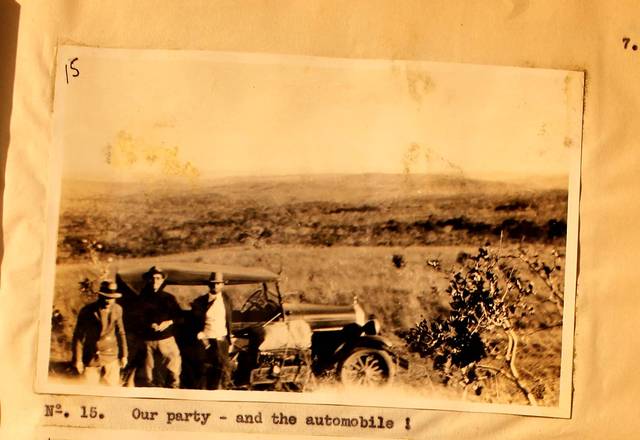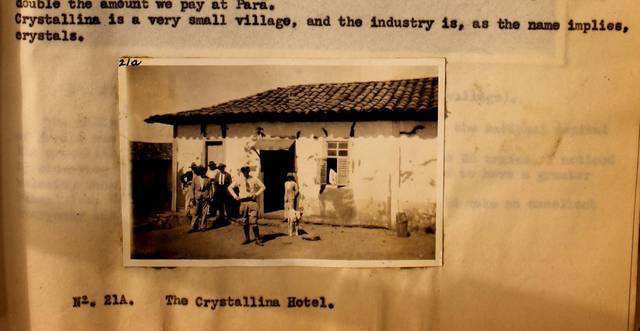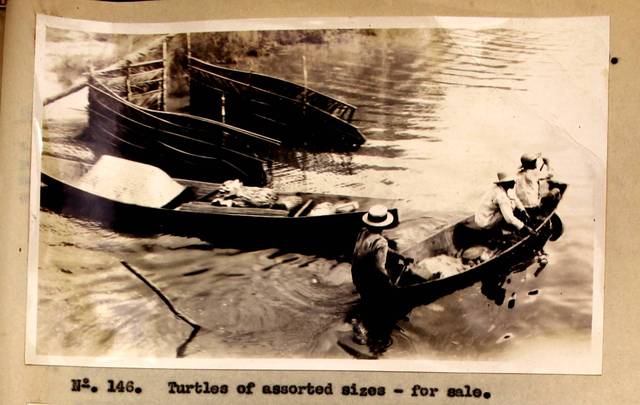 Map of the Tocantins River
Map of the Tocantins River
Travel Log: How to Manage Your Own Amputation
Expedition Diary—September 9th, 1931—An American pilot, prospecting a future airline route through the Amazon, stops in the town of Palma, in the eastern Amazon. As it was customary, the foreign visitor was hosted by the mayor—who also explained how he had lost his arm:
The self-amputation was probably a wise choice, given that the river trip from here to a major city on the coast would have taken an entire month. Palma was hundreds of miles down the Tocantins river, further beyond the lands this enterprising pilot marked as “bad Indian territory:”
Fortunately, his passage through the area also left us with a snapshot record of life in this small frontier town at the time. To help his bosses decide whether this would be a stop in their future airline, the pilot sketched a map, and wrote a small summary of the town’s economy.
In the report, we find out some mundane details about the life of the town—or at least how this pilot understood the place. Mail took 45 days to be delivered to town. Syphilis was a problem. Food was cheap. Customs were quaint.
It might sound strange that an American pilot was in this small town, so far into Brazil’s interior. But a great number of aeronautic professionals was just starting to move into the country, the majority of them working for American or German airlines. Naturally, with air travel to Brazil came also narratives about air travel in Brazil. The book below, for instance, describes a Zeppelin journey from Germany to Brazil. The Zeppelins had round trip service to Brazil, once a month.
This particular expedition left more than a written log. They also photographed extensively, leaving us an interesting visual record of this particular region.


